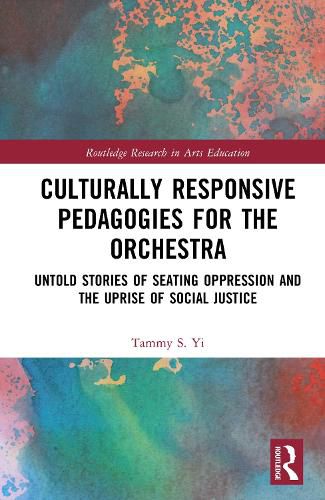Readings Newsletter
Become a Readings Member to make your shopping experience even easier.
Sign in or sign up for free!
You’re not far away from qualifying for FREE standard shipping within Australia
You’ve qualified for FREE standard shipping within Australia
The cart is loading…






This innovative volume explores the potential of alternative seating practices (ASP) to revolutionize orchestral music teaching in US schools and beyond by improving musicians' social and musical experiences, including peer mentorship. Challenging traditional hierarchical seating structures and drawing on longitudinal research and autoethnographic data, it explores the benefits of alternative seating practices on student learning, well-being, and overall musical performance. Rooted in critical discussion of the importance of social justice in music education, it describes new strategies for culturally responsive pedagogies and examines how educators and conductors can create a cohesive and collaborative orchestra guided by the principles of ethnic studies, while valuing and celebrating diversity among the members. It will be of interest to academics, scholars, and educators in music education and pedagogy, social justice education, and race and ethnic studies.
$9.00 standard shipping within Australia
FREE standard shipping within Australia for orders over $100.00
Express & International shipping calculated at checkout
Stock availability can be subject to change without notice. We recommend calling the shop or contacting our online team to check availability of low stock items. Please see our Shopping Online page for more details.
This innovative volume explores the potential of alternative seating practices (ASP) to revolutionize orchestral music teaching in US schools and beyond by improving musicians' social and musical experiences, including peer mentorship. Challenging traditional hierarchical seating structures and drawing on longitudinal research and autoethnographic data, it explores the benefits of alternative seating practices on student learning, well-being, and overall musical performance. Rooted in critical discussion of the importance of social justice in music education, it describes new strategies for culturally responsive pedagogies and examines how educators and conductors can create a cohesive and collaborative orchestra guided by the principles of ethnic studies, while valuing and celebrating diversity among the members. It will be of interest to academics, scholars, and educators in music education and pedagogy, social justice education, and race and ethnic studies.